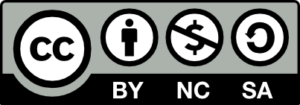The remark of the current law minister of India, Mr. Kiren Rijiju in Rajya Sabha recently that “a new system of appointment of judges in the higher judiciary is much needed as the prevalent collegium system is opaque and inefficient in filling the vacant posts of judges which has led to a huge pendency of cases”, further the remark of the Vice President India “that the striking down the National Judicial Appointment Act was a severe compromise of Parliamentary sovereignty and disregard of the mandate of people” highlights a true debate regarding fight of primacy in the appointment of judges in the higher judiciary. This debate boils down to the fact as to who should appoint the judges, should the primacy lie into the hands of the executive or the judiciary leading us to the question “Who is Superior” whether it is the executive or is it the judiciary, but the answer to it is not who is superior but why should superiority rest with respect to appointment of judges lie in the hands of judiciary. It is because the Indian Constitution follows the doctrine of separation of powers as propounded by Montesquie, its basic spirit is that executive, legislature and the judiciary are superior in their own sphere and no one should usurp upon the powers of another maintaining a system of checks and balances in the governance of the country. Hence the collegium system is responsible to appoint judges to the higher judiciary in India today.
The Debate around Collegium System in India
Publication Information
Journal Title: Asian Journal of Multidisciplinary Research & Review
Author(s): Shreyashi Sah & Pratik Sharwann
Published On: 27/04/2023
Volume: 4
Issue: 2
First Page: 28
Last Page: 35
ISSN: 2582-8088
Publisher: The Law Brigade Publisher
Cite this Article
Shreyashi Sah & Pratik Sharwann, The Debate around Collegium System in India, Volume 4 Issue 2, Asian Journal of Multidisciplinary Research & Review, 28-35, Published on 27/04/2023, Available at https://ajmrr.thelawbrigade.com/article/the-debate-around-collegium-system-in-india/
Abstract
Share this research
Latest Publications

License Information
Copyright © 2024
Shreyashi Sah & Pratik Sharwann

Ownership and Licensing:
Authors of this research paper submitted to the Journal of Science & Technology retain the copyright of their work while granting the journal certain rights. Authors maintain ownership of the copyright and have granted the journal a right of first publication. Simultaneously, authors agreed to license their research papers under the Creative Commons Attribution-NonCommercial-ShareAlike 4.0 International (CC BY-NC-SA 4.0) License.
License Permissions:
Under the CC BY-NC-SA 4.0 License, others are permitted to share and adapt the work, as long as proper attribution is given to the authors and acknowledgement is made of the initial publication in the Journal of Science & Technology. This license allows for the broad dissemination and utilization of research papers.
Additional Distribution Arrangements:
Authors are free to enter into separate contractual arrangements for the non-exclusive distribution of the journal’s published version of the work. This may include posting the work to institutional repositories, publishing it in journals or books, or other forms of dissemination. In such cases, authors are requested to acknowledge the initial publication of the work in the Journal of Science & Technology.
Online Posting:
Authors are encouraged to share their work online, including in institutional repositories, disciplinary repositories, or on their personal websites. This permission applies both prior to and during the submission process to the Journal of Science & Technology. Online sharing enhances the visibility and accessibility of the research papers.
Responsibility and Liability:
Authors are responsible for ensuring that their research papers do not infringe upon the copyright, privacy, or other rights of any third party. The Journal of Science & Technology and The Science Brigade Publishers disclaim any liability or responsibility for any copyright infringement or violation of third-party rights in the research papers.




